This year, Pao School is celebrating its 15 Year Anniversary, after seeing a diverse array of students pass through its doors since its opening. With the mission of developing the whole person, passing on traditions of Chinese culture and fostering an international perspective, the school has always been the proud home of a vibrant multicultural school community. And, even after students leave for the next stages of their journey, the spirit of this mission lives on in their actions and understanding of China – including in Pao School’s ‘first ever’ student, Michael Barbera.
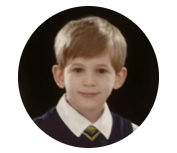
Michael Barbera
Chinese
Vassar College
Pao School’s first student
Originally from the US, Michael and his parents originally come to China as it is one of the world’s ‘big players’. As part of this, the family wanted their son to not only become bilingual but also become immersed in the culture. “At the time Shanghai was just growing and many expats were coming to the city for this incredible growth period. Some of us really wanted our kids to be bilingual and take advantage of this extraordinary opportunity, so we wanted them to be in an immersion environment,” explains Cynthia, Michael's mother.
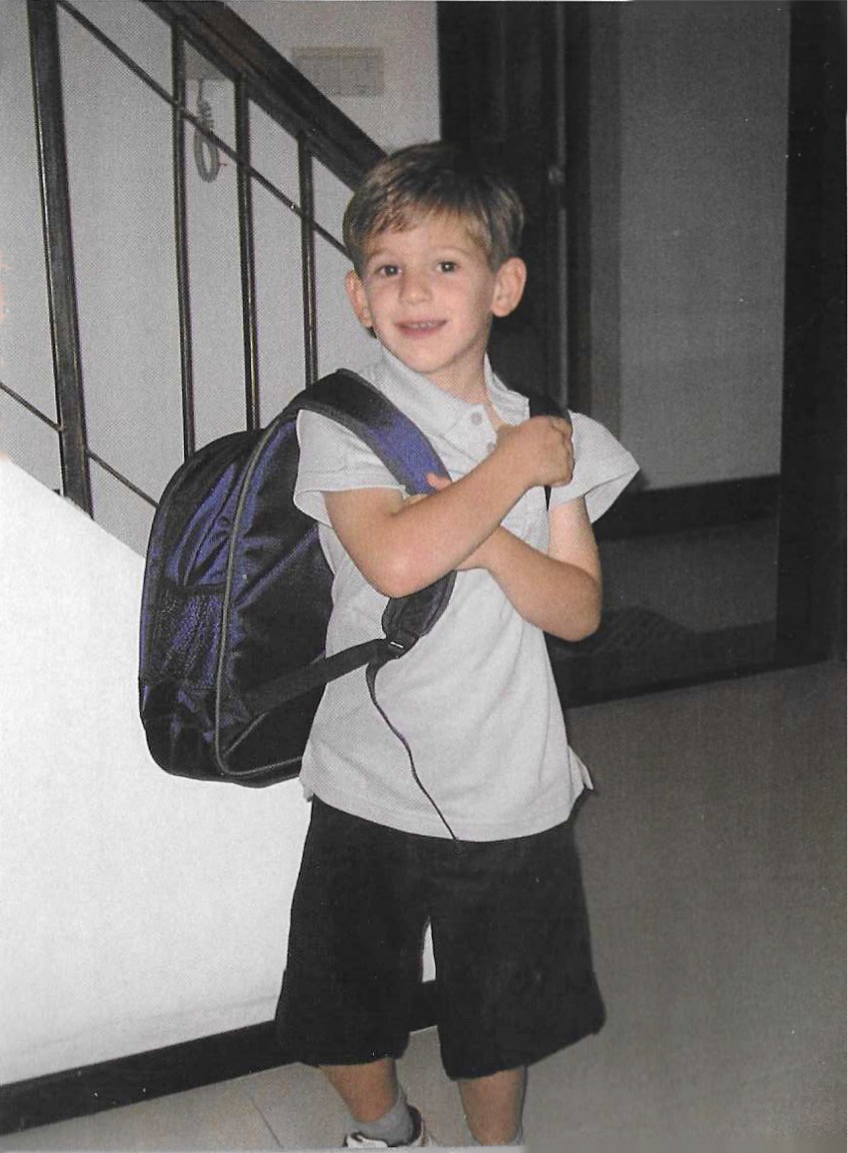
First Day of School
After sending Michael to a bilingual kindergarten and laying the foundation for the language, the family began desperately searching for a school that could continue this education – soon becoming aware of whispers of a new type of school. Curious, Cynthia decided to attend an introductory talk that Pao School founders, Professor Anna Sohmen Pao and Philip Sohmen, were holding in the library at Jiao Tong University. For Cynthia, that presentation was life-changing. Alongside 60 others, she found herself hooked on the founders’ every word and, by the end of the session, had already committed her son Michael to Pao School – giving them the honour of becoming the first family to join the school.
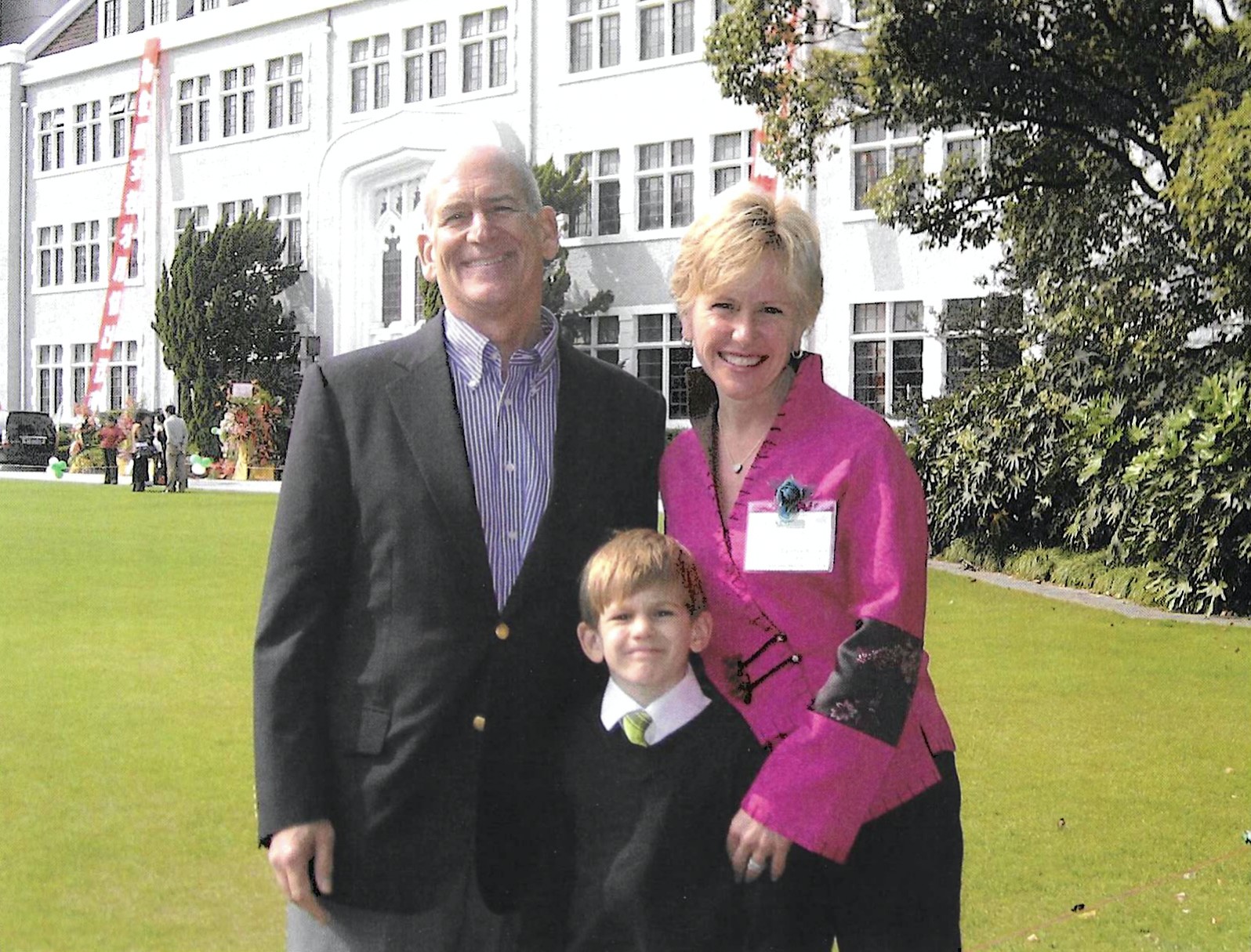
Official Opening of YK Pao School in 2007
“I had confidence in the school because I believed in Mrs Sohmen, I had faith in both the Sohmens. All of China was an adventure for us and I had full confidence it was going to be a good school,” explains Cynthia, who was moved to tears by the Sohmen’s vision for the school. Mrs. Sohmen’s words ‘resonated’ with her, most especially the belief that education should be child-centric, that the students should have freedom within boundaries, and that they should be able to make their own mistakes to learn from. Importantly, it was laid out that the school should be its own learning organism, with skilled teachers that are humble enough to continue learning from one another.
Memories of excitement and happiness
“YK Pao School had the bravery to say let’s be a Chinese school, not a Western school with Chinese,” Cynthia states. It was this that contributed to a ‘culture of excitement’ at the school, as though they were divided by language, both local and international parents were excited to come together to pioneer a new model for Chinese education. She explains, “Though there were difficult hurdles as things settled in, such as the questions about whether to teach the children pinyin, the early days were exciting. We were part of something new. We were going to make it work. We'd made the decision and I just didn't feel that there was anything but optimism and excitement and awe that the Sohmens had pulled this off.”
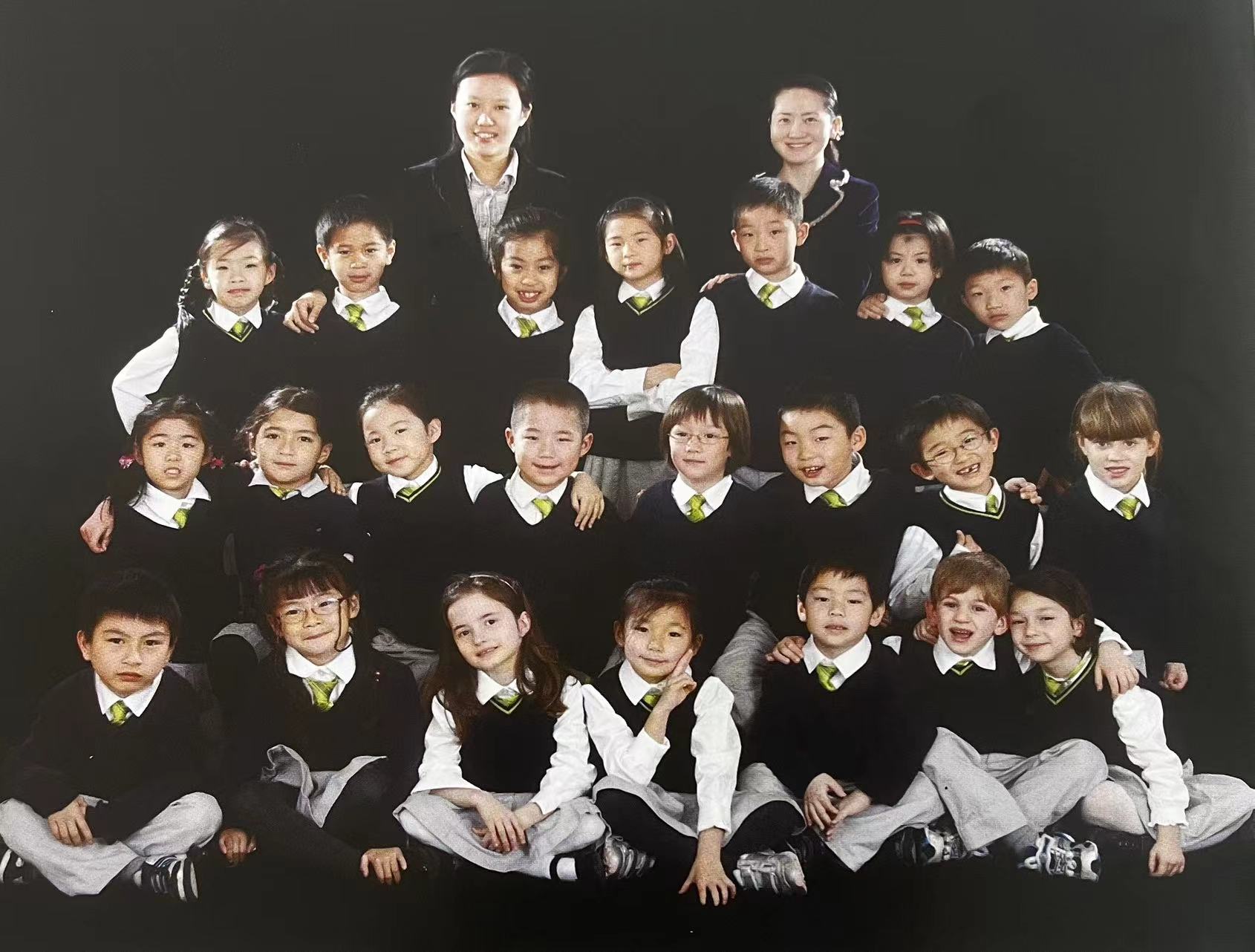
Michael in Year 1, 2008 (bottom row, second right)

Michael with his favourite teacher, Ms. Cherry
Cynthia and Michael both have a number of fond memories of Pao School that they carry with them to this day. As they lived only ten minutes away, they would ride a bike to school through the alleys of Shanghai, stopping to eat traditional Chinese food. Michael, as he could speak Chinese without a foreign accent, quickly became a ‘mini celebrity’ which left them sometimes spending hours meandering through the lanes and enjoying connecting with the locals.
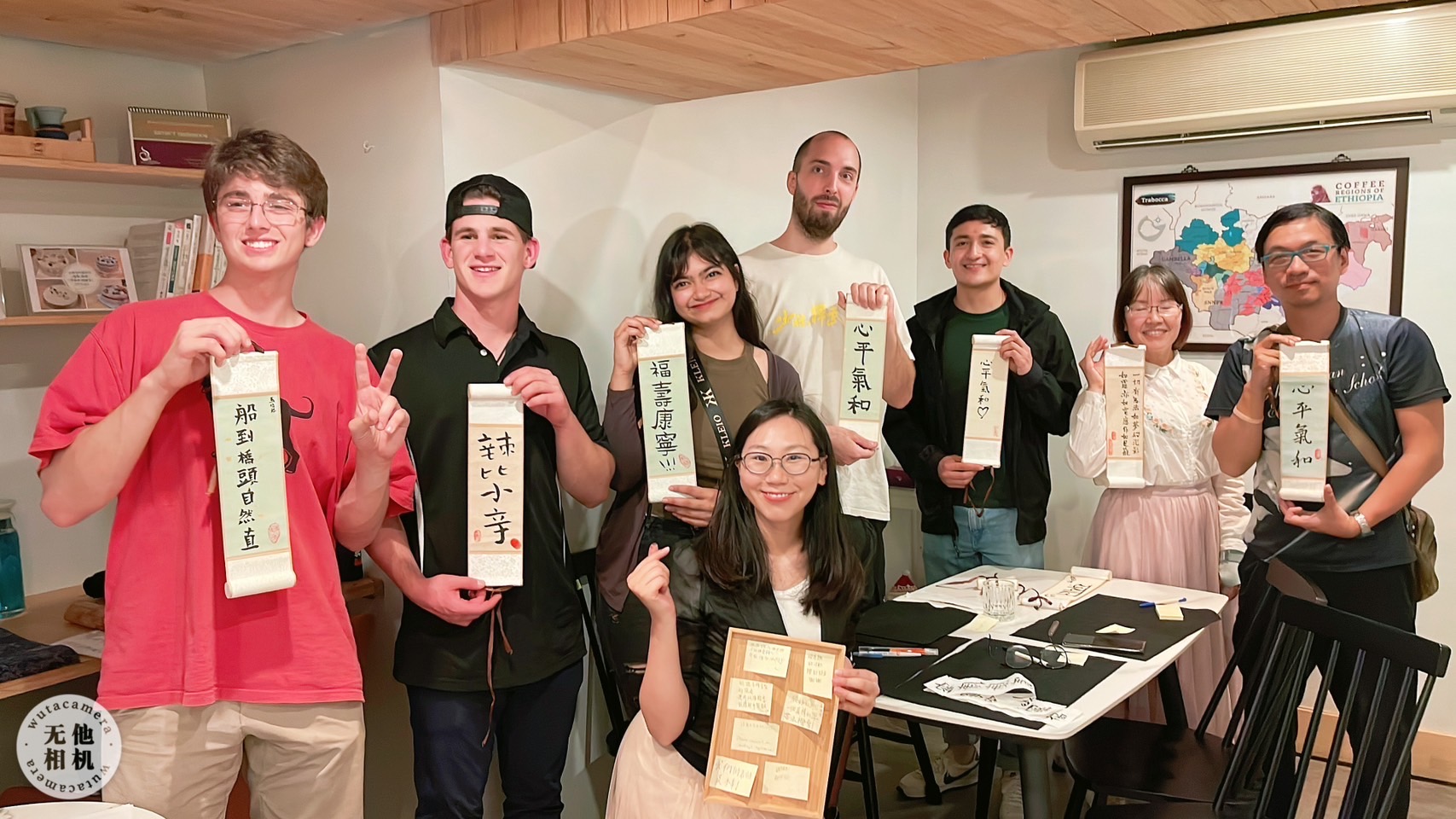
“When I think about that period, it's pretty much only happy memories,” says Michael, who will always remember the school uniform, raising the Chinese flag with his classmates, and the lively lunchtimes where he was helped by the school’s ayis. Though it has been many years and it is difficult to recall much of his time at the school, he always remembers it with strong feelings of fondness and contentment.
One moment that stands out to Michael is from art class, in which they created an art piece with their school House groups. For the piece, the students came together outside to flick paint onto a shared canvas, much like a Jackson Pollock painting. Funnily, Michael says, this memory has deeply influenced him into adulthood and he is now a fan of this type of artwork due to the fond associations he holds to this memory.
/ Building the parent-school community /
Today, an important component of the Pao School community is the Parent Teacher Assocaition (PTA), of which Cynthia was a founding member. During Michael’s time school, Cynthia helped write the PTA charter alongside another parent, Eugenia Yen. In developing the PTA Charter, the two regularly met with Crick Chen and Warren Johnston, whom Cynthia remembers as key factors in the school’s early success. Through collaborative leadership, the environment at the school was both Western and Chinese in equal measure. Cynthia says, “Their positive view and the clear leadership that they showed sent a message to everybody that the ‘YK Pao School’ experiment was going to work.”
Bridging the cultural gap between Chinese and international parents was at first challenging, as many local parents were not familiar with the role a PTA should play. For example, Cynthia needed to ensure parents understood that they were not to decide aspects like the curriculum but to organise things such as fundraising events and to promote the collaboration between the school and the parent community.
Cynthia remembers, “I wound up being sort of the de facto president of the PTA, so when they did the grand opening I was asked to speak. I thought, oh my goodness, really? Since probably 98% of the people in the auditorium were Chinese, I decided I would muster the courage and do my speech, both in Chinese and in English, and I spent days memorising my speech.”
A legacy of love for Chinese language and culture
After Michael’s third year at the school, the family relocated back to the US. Since leaving, the family returned to China each year, helping maintain Michael’s connection to the country. Since leaving, he has continued learning Chinese by joining schools with language programmes and through private tutoring. These days he has become fascinated with learning more Chinese idioms – his favourite is ‘to steal a bell while covering your ears’ (掩耳盗铃), which means to keep your head in the sand – and has gained a new appreciation for traditional Chinese characters.
Despite now being at an advanced level of Chinese, it has not been without challenges over the years. However, despite these setbacks, he has maintained his desire to learn the language due to its uniqueness and his concern about losing his fluency. “I feel like I have a unique skill that I can really work on – speaking Chinese is the advantage I've had since my youth,” he says.
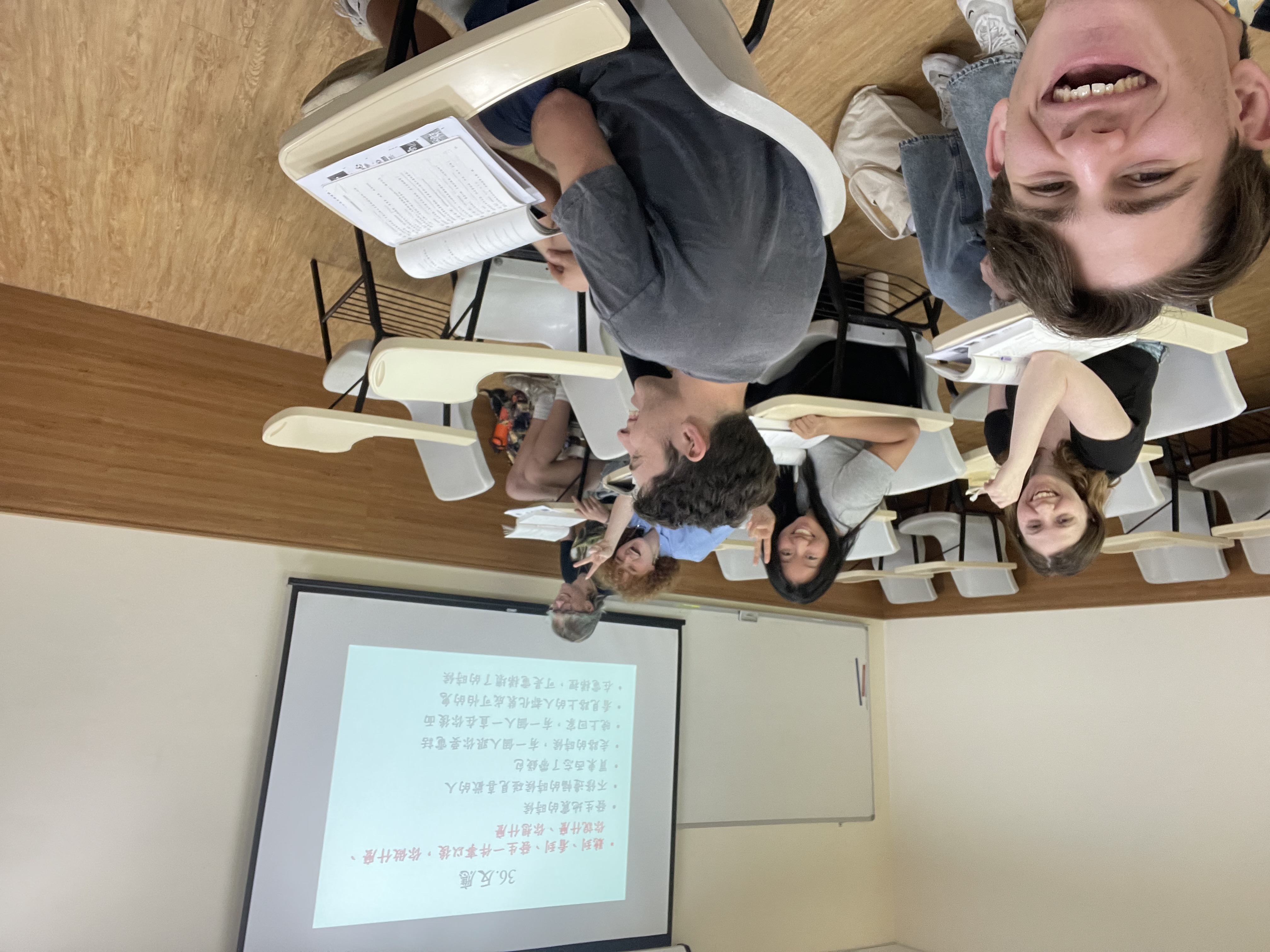
Michael is now in his junior year at Vassar College, studying a major in Chinese. Over the past year, he has been undertaking an intensive Chinese language programme at National Taiwan University and will shortly be spending the summer in Beijing for a similar language programme at Tsinghua University. He explains that, as he lives with other advanced Chinese speakers, throughout the year at National Taiwan University he has mostly spoken Chinese, only stopping to learn new words.
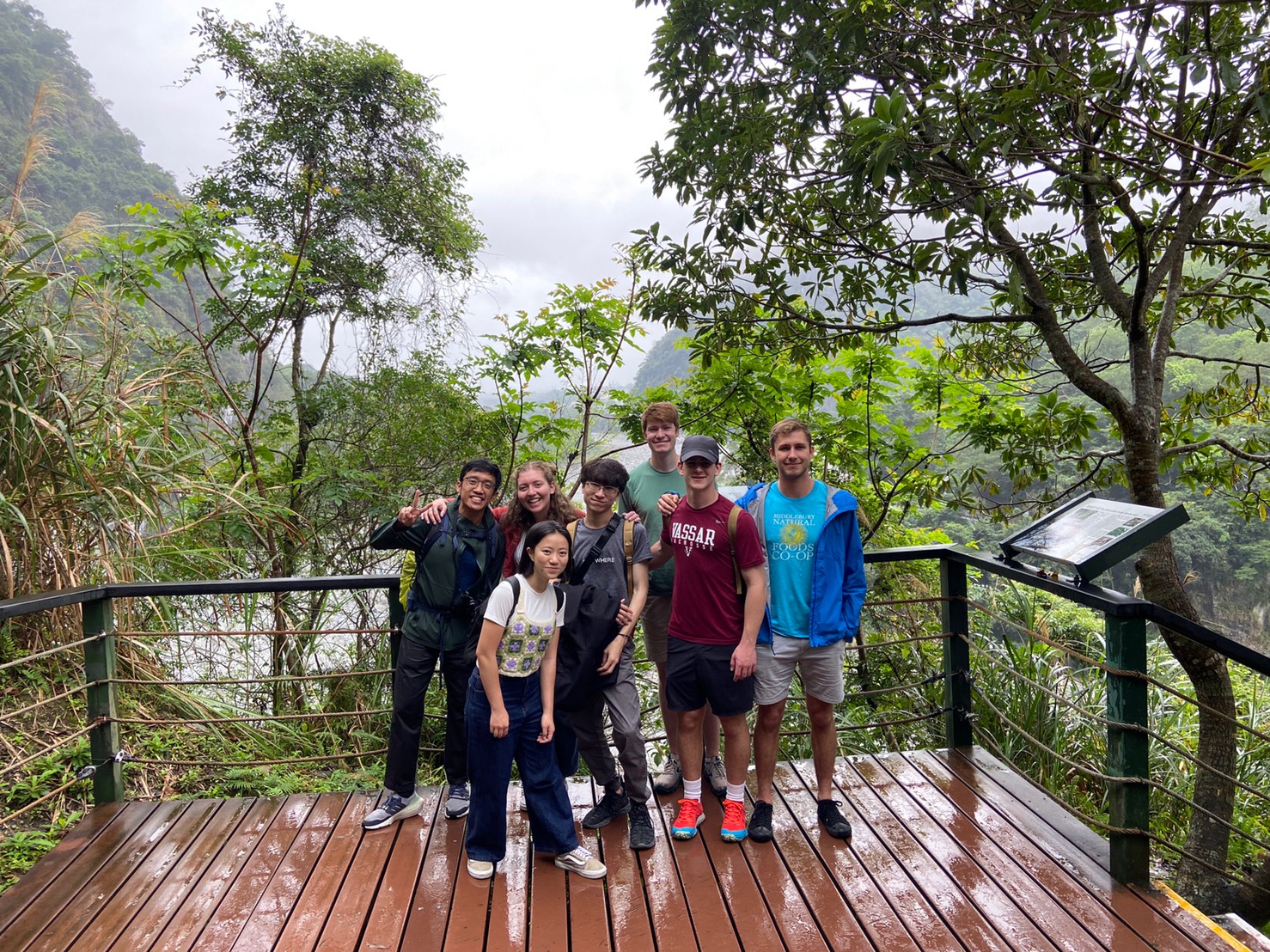
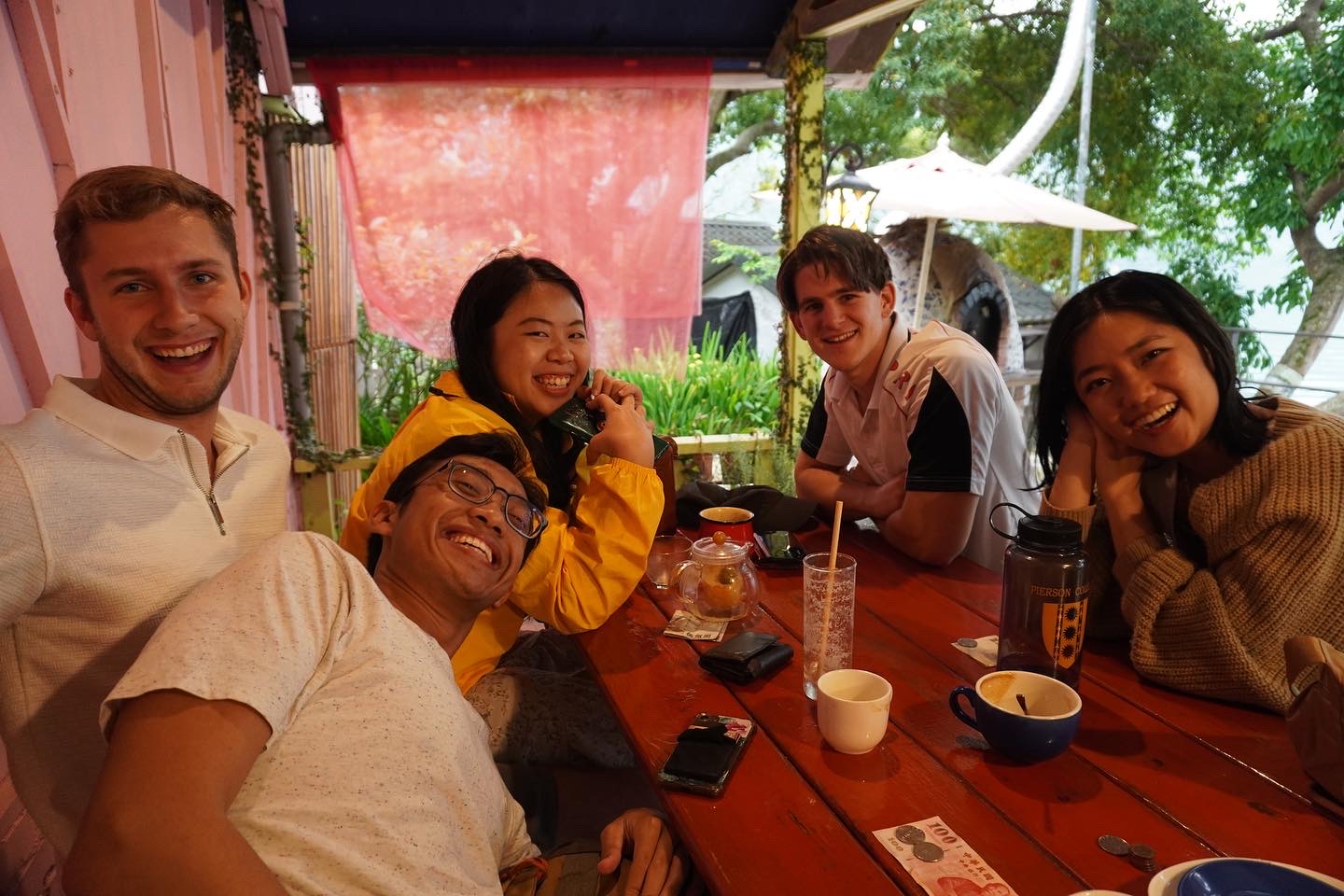
In the future, Michael hopes to use his love for Chinese language and understanding of the country to live and work in Asia. Michael says that, to him, Chinese culture ‘doesn’t feel foreign’ and that it is easy for him to navigate his way through the country. In particular, he really enjoys the family-focused nature of Chinese culture, such as eating together in large family banquets.
“What I'm thrilled about is the legacy, Michael has great love for China. He remembers every single day getting up and singing qi lai, raising the flag and even during the 2008 Olympics he stood up for the Chinese national anthem. His time at YK Pao was really formative and important. It is the foundation for his life. If it had not been for YK Pao, that would not have happened. This was probably the single most important thing that has determined his life so far, and potentially his future.”
——Cynthia